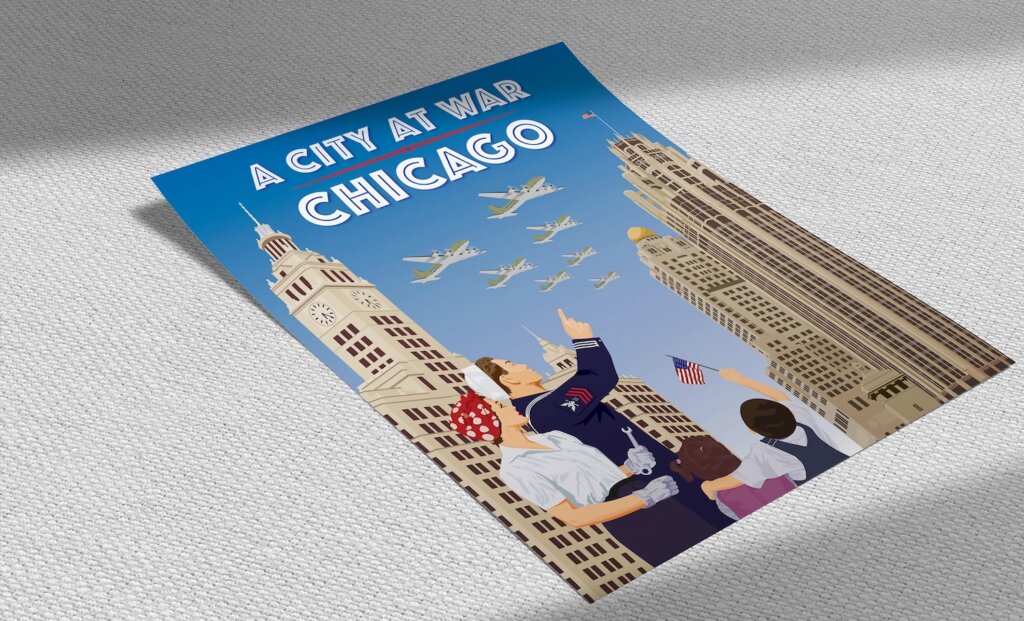In 1943, it wouldn’t be strange to see groups of Naval officers on North Michigan on their way to classes at Northwestern University in Chicago. In Grant Park, women were conducting marches and drills. At Orchard Field Airport — now O’Hare International Airport — workers assembled aircrafts inside a mile-long facility. And over Lake Michigan, planes buzzed in the skies as pilots trained on two makeshift aircraft carriers docked near Navy Pier.
“Remember, the U.S. went from about half a million military personnel to about 16 million, nearly overnight during World War II,” said Associate Professor Joseph Troiani, Ph.D., founding director of the Master of Arts in Military Psychology at Adler University. “The city of Chicago’s role in ensuring Allied victory cannot be overstated.”

Dr. Troiani shared these stories at the Chicago History Museum on Aug. 16, during a panel held after the screening of A City at War: Chicago. A Navy veteran, he has become a leading voice on the impact of war and military life — expertise he now brings to his work at Adler University. He has also brought that knowledge to the film as an advisor and consultant, helping shape its telling of how Chicago and its surrounding communities mobilized to meet the demands of war.
Moderated by former longtime Chicago television political reporter Mike Flannery, the panel also included filmmaker Brian Kallies and Hedy Ratner, President Emerita of the Women’s Business Development Center. Together, they reflected on how A City at War: Chicago brings to life the city’s wartime transformation, from factories where tens of thousands of women worked for the first time, to neighborhoods uniting across backgrounds to support the war effort. A presidential executive order that prevented defense contractors from discrimination based on race also resulted in a wave of Black Americans moving to the northern cities, including Chicago, for defense industry jobs.
“My own mother, at the age of 15, dropped out of high school and got a production job,” said Dr. Troiani. “Remember, that generation was coming out of the Depression. So, for them, and other families, this was a game changer.”
The film also examines the relationship between President Franklin D. Roosevelt and Chicago Mayor Ed Kelly, and the University of Chicago’s role in the top-secret Manhattan Project, which produced the world’s first controlled nuclear reaction.
“It’s been a great honor to be part of this project,” Troiani said. “The documentary, with the help of Captain Dave’s Foundation, ensures the stories of how Chicago’s communities came together in a time of war are never forgotten.”
The Dave Truitt Historical Documentary Series will last several years. The screening was part of the Dave Truitt Historical Documentary Series, an ongoing initiative of Captain Dave’s Foundation. The Foundation was founded by the late U.S. Army Captain Dave Truitt, a distinguished advocate and steward of naval heritage and Chicago’s maritime legacy.
